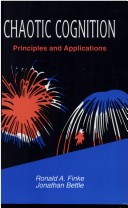Modern society has entered an age of unpredictability, as anticipated by many writers and sociologists. The future is uncertain, job security no longer exists, and marriages are failing at an increasing rate. Having been led to believe that life is supposed to be predictable, most people lack the skills to adapt to these changes. This book describes the principles and applications of chaotic thinking, which thrives on unpredictability and change, and which is ideally suited for adaptation and survival in modern times.
Chaotic thinking is not new, but it has been largely forgotten, neglected, and undervalued. Chaotic thinkers have often been regarded as undisciplined, unfocused, and unmotivated, and have usually been dismissed by society, which values order, discipline, and ambition. Yet they are more likely to survive catastrophes, handle sudden emergencies, and adjust to major disruptions in their personal and professional lives.
By providing an in-depth analysis of the principles of chaotic thinking, this book will help to promote a more general understanding and acceptance of this neglected cognitive style. By identifying various chaotic thinking techniques that follow from these principles, and explaining how they work, it will provide new and powerful methods for adapting to these changes. By describing specific applications of these techniques, it will help people to deal more effectively with a variety of chaotic situations. These applications include dealing with unexpected emergencies, surviving economic crises and career changes, responding appropriately in dangerous situations, recovering from broken relationships, and improving interpersonal and counseling skills.
- ISBN10 0805817395
- ISBN13 9780805817393
- Publish Date 1 February 1996
- Publish Status Out of Print
- Out of Print 7 April 1999
- Publish Country US
- Publisher Taylor & Francis Inc
- Imprint Lawrence Erlbaum Associates Inc
- Format Hardcover
- Pages 240
- Language English
